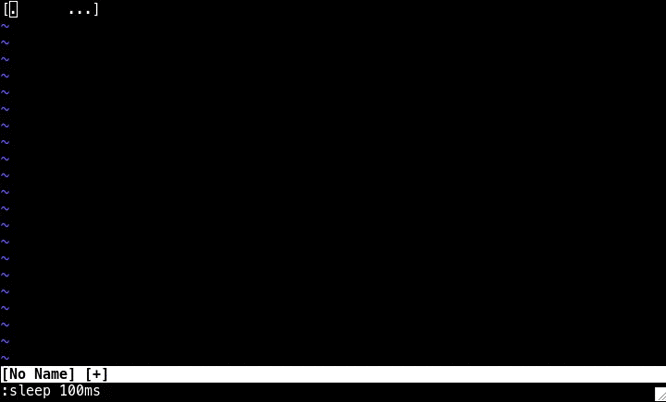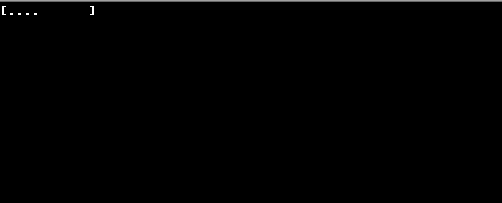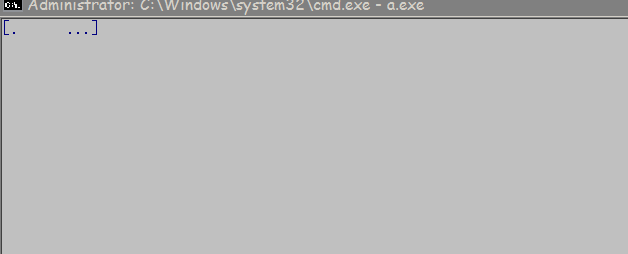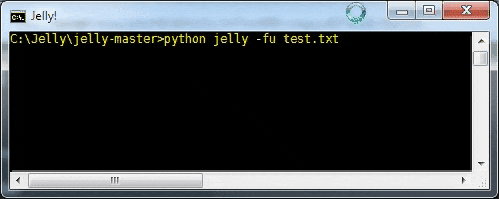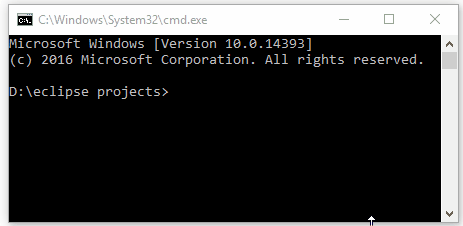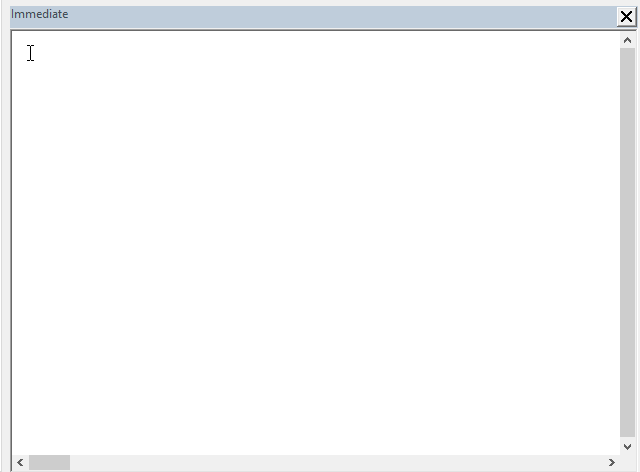Створіть панель завантаження в стилі Windows, дотримуючись наступних інструкцій.
(зауважте, що це відрізняється від завантаження ... назавжди )
Ваш вихід повинен починатися з початку [.... ].
Кожен галочку слід зачекати 100 мс, а потім перемістити кожну крапку одним символом праворуч. якщо крапка знаходиться на десятому символі, перемістіть її на перший. Зауважте, що перед очищенням екрана слід очистити екран. Вихід упорядкований у такий спосіб:
[.... ]
[ .... ]
[ .... ]
[ .... ]
[ .... ]
[ .... ]
[ ....]
[. ...]
[.. ..]
[... .]
..Тоді воно навіє петлі назавжди.
Правила
- Це кодовий гольф , тому найкоротша відповідь виграє,
я сумніваюся, що я навіть прийняв би виграшну відповідь - Будь ласка, надайте gif-файл завантажувальної панелі, якщо це можливо.
\rдозволено використання замість того, щоб буквально очищати екран?
